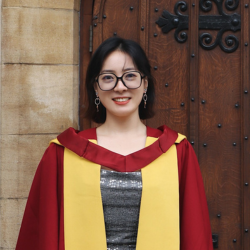The Accountancy Group at UCD has an international reputation for the quality of its research and teaching. Our vision is to be among the top academic accounting groups in Europe by providing a relevant and challenging curriculum in Accounting and related subjects for its students, delivered by excellent faculty committed to quality in teaching and research. Through our undergraduate programmes and postgraduate taught programmes we aspire to provide for our students an environment that facilitates the acquisition of knowledge and skills suitable for entry into professional accountancy and management. Key among these are critical and problem-solving skills, the ability to work as part of a team, to communicate business and financial issues effectively, and to understand and use technology to its best advantage.
The interaction between research and teaching is one of the main features distinguishing leading business schools around the world. We clearly recognise the link between research and teaching and strenuously promote the development of high-quality research.
The Accountancy Group has a specific commitment to research and publication and the volume and range of its output strongly reflects this commitment. Each group member has brought distinct ideas and experience to bear in his/her research resulting in a valuable and rewarding diversity of topics and approach.
Research Areas and Centres
The mission statement of the University focuses on the advancement of knowledge through research, which is perfectly aligned with excellence in teaching. Members of the Accountancy Group are committed to these ideals. Based on recent publications and current activities, the following research areas reflect the main activity within the Accountancy subject group:

The area of accounting history is gaining increasing recognition in academic circles around the world. The Accountancy subject group has generated pioneering research into the development of financial and managerial accounting in Ireland and related areas. Research in these areas is ongoing.
The UCD Centre for Corporate Governance was established in 2002. In addition to providing training to company directors and those interested in governance, the Centre acts as a research hub, promoting research in corporate governance and publishing in high quality international refereed journals. The Centre offers an opportunity for a community of scholars to come together to share ideas in this field. Research has been/is being conducted out of the Centre on the workings of company boards, non-compliance explanations, mutual fund boards, governance of family businesses, whistleblowing, executive compensation and clinical governance.
Over the last decade, a considerable amount of literature on biologically inspired algorithms (BIA) has emerged. These powerful algorithms can be used for optimisation, for classification, and for building models of complex systems. All of these have immediate real-world application across a wide range of business applications, as the algorithms can be used in creating computer systems to assist us in real-world decision making. Reflecting the growing importance of these computer systems in business, an interdisciplinary research group, the Natural Computing Research and Applications Group (NCRA), has been set up in UCD.
The NCRA has built up a sizeable research team which has worked on a wide range of projects. These include the development and application of natural computing methodologies to the modelling of financial markets and instruments, asset management, credit risk assessment and trading system development. The NCRA has also undertaken a number of projects in the domain of management science. The research interests of the NCRA also encompass agent-based modelling.
Members of the subject group investigate the relationship between accounting numbers and stock prices using statistical methods. Large sample studies on firm valuation and accounting conservatism have been carried out using the COMPUSTAT database. A number of studies on international equity valuation, international analyst forecasts and accounting measurement have been completed. In addition research in financial reporting and impression management is on-going.
Members of the Accounting Subject group are involved in an EU Research Training Network entitled ‘Accounting Harmonisation and Standardisation in Europe: Enforcement, Comparability and Capital Markets Effects’. The objectives of this research network include, for example, the investigation of compliance with accounting regulations and standards in Europe and to apply new approaches to the measurement of harmonisation and standardisation in accounting.
Management Accounting research and interest within the Accountancy subject group has focused on investigating theoretical issues and practical management accounting systems within companies. These included, for example, studies on traditional management accounting systems, activity-based costing systems and aspects of performance measurement systems. The research distinguishes between manufacturing and service firms, large and small-scale enterprises, multi-national and indigenous firms.
This research focuses on the regulation of the accounting profession, in particular the disciplinary procedures of professional accounting bodies and the negotiation and implementation of change to regulatory processes within professional accounting institutions. In addition, members of the Accountancy subject area are investigating the dynamics involved in the maintenance of accounting institutions and the construction and maintenance of organisational identity by regulatory oversight and professional accounting bodies. This research is ongoing.
This research agenda addresses the global challenge of escalating health care costs. A body of accounting literature highlights the lack of knowledge of how much it costs to deliver patient care and what health outcomes are achieved relative to cost. Members of the accounting group investigate cost and health outcome measurement for medical conditions and are involved in large EU comparative studies. Members of the accounting group act as investigators within the UCD Applied Research for Connected Health (ARCH, www.arch.ie) investigating how digital solutions may improve value for patients by improving processes of care, health outcomes and their effect on health care costs.
Related to this research agenda is an evaluation of international Sugar Sweetened Beverage Tax policies to investigate how tax policy can play a role in addressing the global societal challenge of overweight and obesity, gathering data for evidence-informed tax and health policies. Members of the accounting group are investigators in a H2020 study on Big Data and Childhood Obesity.









.png)














